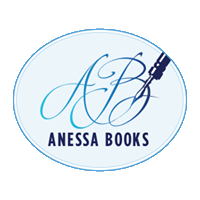 If you’ve been around the block a few times, as I have, you’ve probably heard of SMART goals. If you haven’t, I’m here to tell you about them today because they are an integral part of getting that writing—or really anything!—done. It might not hurt to read through a refresher even if you know what SMART goals are.
If you’ve been around the block a few times, as I have, you’ve probably heard of SMART goals. If you haven’t, I’m here to tell you about them today because they are an integral part of getting that writing—or really anything!—done. It might not hurt to read through a refresher even if you know what SMART goals are.
By the fact that the word “smart” is in all caps, you know that that’s an acronym. 😊 Here’s what it stands for:
- Specific
- Measurable
- Achievable
- Relevant
- Time-based
So, let go through them and see what they are:
A specific goal is a goal needs to be specific enough that you can break it down into easy actionable steps. So does that mean “Write a novel” is a specific goal? Not really. It’s too vague. There are too many different types of novels that you could write. How about if we define that a little more: “Write a fantasy novel.” That’s good. That’s a goal that we can break down into smaller, actionable chunks:
- Create characters
- Decide on what world the characters will inhabit and the rules of the world.
- Figure out what the protagonist’s GMC is
- Based on their GMC, determine the plot of the story.
- Write the story.
For your goal to be measurable you have to know when you’ve achieved your goal. If you are sitting at the end looking at a beautiful book in your hand, that can be a form of measurement.
A better one might be to decide how long you think your book should be, say 80,000 words. With a measurable goal of 80k, we can then break that goal down further—once you’ve begun the “Write the story” part of your goal, decide how much you want to write in a day—100 words? 1000 words? Or you can break it down into time. You know that you can spare half an hour day for your writing. That’s great! That is your unit of measurement.
Now that we’ve broken down our goal into smaller chunks, we can see that those smaller chunks feel much more achievable than the overall goal of writing a fantasy novel. You might even want to break your chunks down into even small bits to make them even more achievable:
Decide on the POV character. Are they the hero or just a side narrator?
What is the political system of the world you’re creating, if that’s relevant to your story (otherwise pick an aspect of the world that is, say, how magic is used or who has it).
The goal of “write the story” can seem a little daunting, let’s make that more achievable by breaking your story down into parts:
- Set up
- First turning point
- Point of No Return
- Black Moment
- Resolution
If you know what’s going to happen at each of those points in the story you can figure out what your characters need to do to get there. You can break things down even further by planning out the specific scenes that you need to write to get your characters to each of those turning points.
How do you know if what your working on is relevant to your larger goal? We’ve now broken down our goal into some really small bits—from a novel to all the pieces that go into a novel. But what if you suddenly find yourself researching Greek mythology. Is that relevant to the story your writing or did you fall down a rabbit hole of internet research? Do you really need to know what your character did for their fifteenth birthday? Only if it impacts the way they’re behaving in your story!
Be sure that what you are actually working on is relevant to your overall goal. It’s really easy to get side-tracked!
When do you want to have that book in your hand? Do you want it there next month? (Not sure I’d count that as achievable.) How about next year? Having a deadline (also known as making your goal time-based) gives you a little more push to get to work on accomplishing your goal. Having smaller daily goals like 1000 words or working for half an hour makes your goal time-based and keeps you moving forward.
So, there you have it: a SMART goal. You know what you want and you know that you can achieve it. The surest way to do so is to break it down and get it done.
